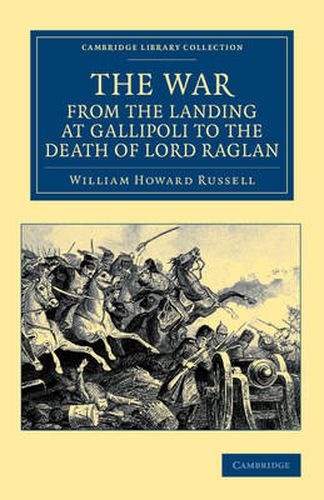Readings Newsletter
Become a Readings Member to make your shopping experience even easier.
Sign in or sign up for free!
You’re not far away from qualifying for FREE standard shipping within Australia
You’ve qualified for FREE standard shipping within Australia
The cart is loading…






The journalist William Howard Russell (1820-1907) is sometimes regarded as being the first war correspondent, and his reports from the conflict in the Crimea are also credited with being a cause of reforms made to the British military system. Published in 1855, during the late stages of the conflict, this is a collection of eye-witness reports originally printed in The Times newspaper, including the famous account, from 25 October 1854, of the Charge of the Light Brigade during the Battle of Balaclava, and the other engagement on the same day which gave rise to the phrase ‘the thin red line’. Russell’s accounts are unflinching in their dramatic descriptions of the appalling and insanitary conditions endured by the ill-provisioned troops, and his criticism of those in command, particularly Lord Raglan, had a dramatic impact on the British people and government. Reading these letters today, it is easy to understand why.
$9.00 standard shipping within Australia
FREE standard shipping within Australia for orders over $100.00
Express & International shipping calculated at checkout
The journalist William Howard Russell (1820-1907) is sometimes regarded as being the first war correspondent, and his reports from the conflict in the Crimea are also credited with being a cause of reforms made to the British military system. Published in 1855, during the late stages of the conflict, this is a collection of eye-witness reports originally printed in The Times newspaper, including the famous account, from 25 October 1854, of the Charge of the Light Brigade during the Battle of Balaclava, and the other engagement on the same day which gave rise to the phrase ‘the thin red line’. Russell’s accounts are unflinching in their dramatic descriptions of the appalling and insanitary conditions endured by the ill-provisioned troops, and his criticism of those in command, particularly Lord Raglan, had a dramatic impact on the British people and government. Reading these letters today, it is easy to understand why.